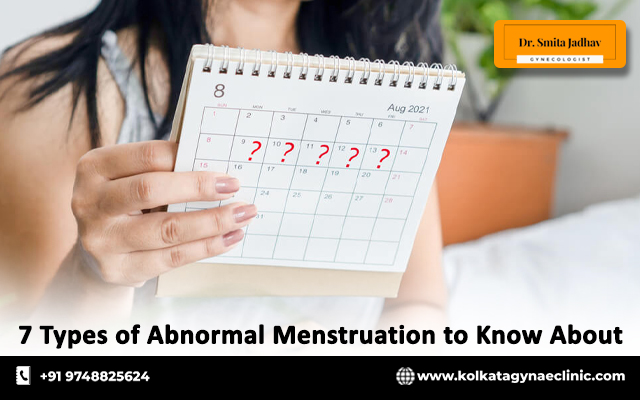Understanding your menstrual cycle is crucial in maintaining good reproductive health. Abnormal menstruation can signal various health issues, so knowing what to look for is vital. The top gyne surgeon in Saltlake explains seven types of abnormal menstruation that women should be aware of.
Heavy Menstrual Bleeding (Menorrhagia)
Menorrhagia is characterized by excessively heavy periods that last longer than seven days. Signs include soaking through sanitary products every hour or using both pads and tampons simultaneously. This can lead to anaemia and severe fatigue. If you experience these symptoms, you must consult the best lady gynecologist in Saltlake for an evaluation.
Painful Periods (Dysmenorrhea)
Dysmenorrhea involves severe and frequent menstrual cramps and pain during your period. Primary dysmenorrhea refers to common menstrual cramps, while secondary dysmenorrhea is due to an underlying reproductive issue, such as endometriosis or fibroids. Effective treatment can include medication, lifestyle changes and sometimes surgery.
Infrequent Periods (Oligomenorrhea)
Oligomenorrhea occurs when periods occur infrequently, typically fewer than six to eight periods a year. This condition can be caused by various factors, including polycystic ovary syndrome (PCOS), extreme weight loss or gain, and excessive exercise. It’s important to visit the best lady gynaecologist in Saltlake to determine the underlying cause and appropriate treatment.
Absence of Menstruation (Amenorrhea)
Amenorrhea is the absence of menstruation in women of reproductive age. Primary amenorrhea is when a girl over 15 has never had her period, while secondary amenorrhea is when a woman who previously had regular periods stops menstruating for three or more months. This condition can result from hormonal imbalances, significant weight changes, stress, or underlying medical conditions.
Irregular Menstrual Cycles
Irregular periods are when the length of your menstrual cycle frequently changes. This can be due to hormonal imbalances, stress, thyroid issues, or the onset of menopause. Regular monitoring and consultation with the top gyne surgeon in Saltlake can help identify the cause and manage the symptoms.
Short Menstrual Cycles (Polymenorrhea)
Polymenorrhea refers to having menstrual cycles that are shorter than 21 days. This can be particularly concerning as it may indicate underlying hormonal issues or other health problems. Identifying and treating the cause can help in managing the condition effectively.
Prolonged Menstruation (Hypermenorrhea)
Hypermenorrhea is when menstrual bleeding is excessively long, typically lasting more than eight days. This condition can lead to anaemia and extreme fatigue, impacting daily life. Causes can include hormonal imbalances, uterine fibroids, or other underlying conditions. Seeking help from the best lady gynecologist in Saltlake can provide relief and proper management of symptoms.
Abnormal menstruation can significantly impact a woman’s quality of life and may indicate underlying health issues. Recognizing these seven types of abnormal menstruation is essential for early diagnosis and treatment. Consulting the top gyne surgeon in Saltlake can ensure you receive the appropriate care and support to manage your menstrual health effectively.


